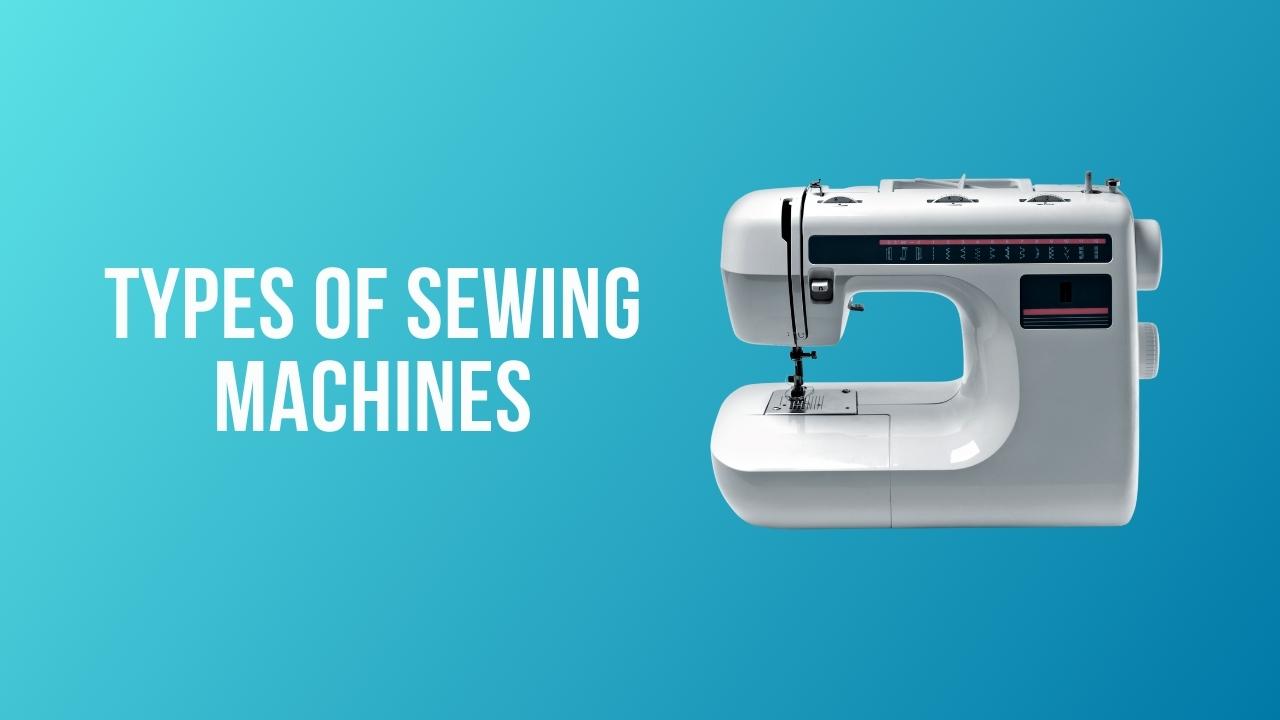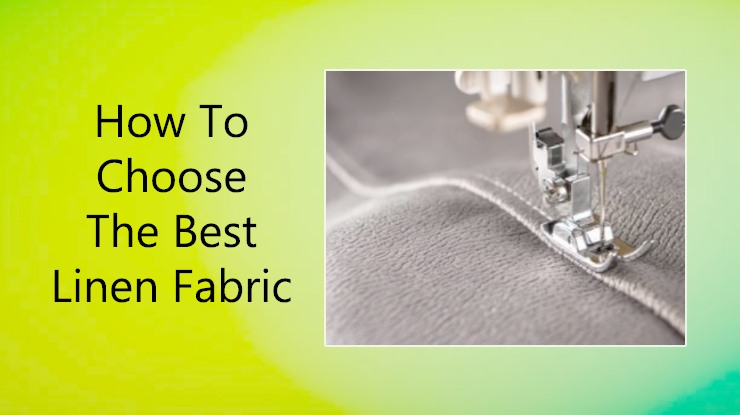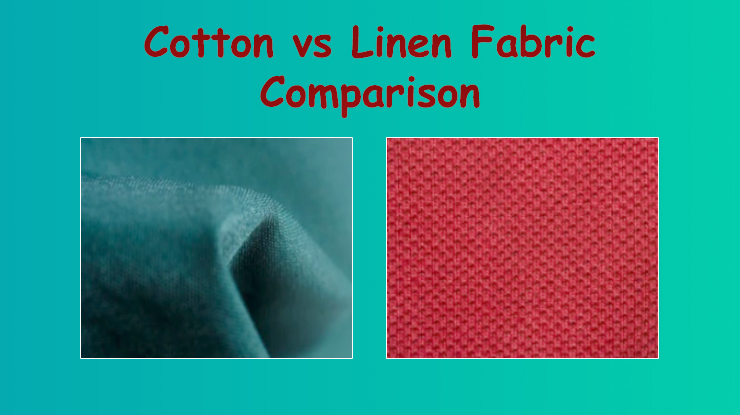Are you new to stitching? If yes, then do not dare to buy a sewing machine without guidance.
Here I am trying to help all the novice, or expert sewers in finding a suitable type of sewing machine.
This guide is intended to make you compare, and understand each type of machine. After going through it, you will be able to select the best type of sewing machine for you. Provided that I have shared all the functions, pros, and cons regarding every type.
So, let us get started.
A Quick Comparison
| Types | Pros | Cons | Usage |
| Classical / Vintage | Archival quality, Affordable, easy to use, Ideal for beginners | No new features, very heavy | Domestic |
| Mechanical | Easy to use, Affordable, Simple built, durable. | Limited technology | Domestic |
| Electronic | Specific, fast, and durable. | Expensive, and not suitable for older generations. | Domestic and industrial |
| Computerized | Versatile, compact, sturdy, and multi-purpose. | Costly, and non-portable. | Domestic and industrial |
| Embroidery | Fast, specific, user friendly. | Limited use, setting-up takes time. | Domestic and industrial |
| Quilting | Ideal for thick fabrics, durable, and specific. | Limited use, very noisy. | Industrial use |
| Heavy duty | Advanced, multi-purpose, and easy to use. | Noisy, non-portable, and not suitable for hemming. | Industrial use |
| Serger | Specific, fast and durable. | Noisy, heavy, and costly | Industrial use |
Classical Sewing Machines
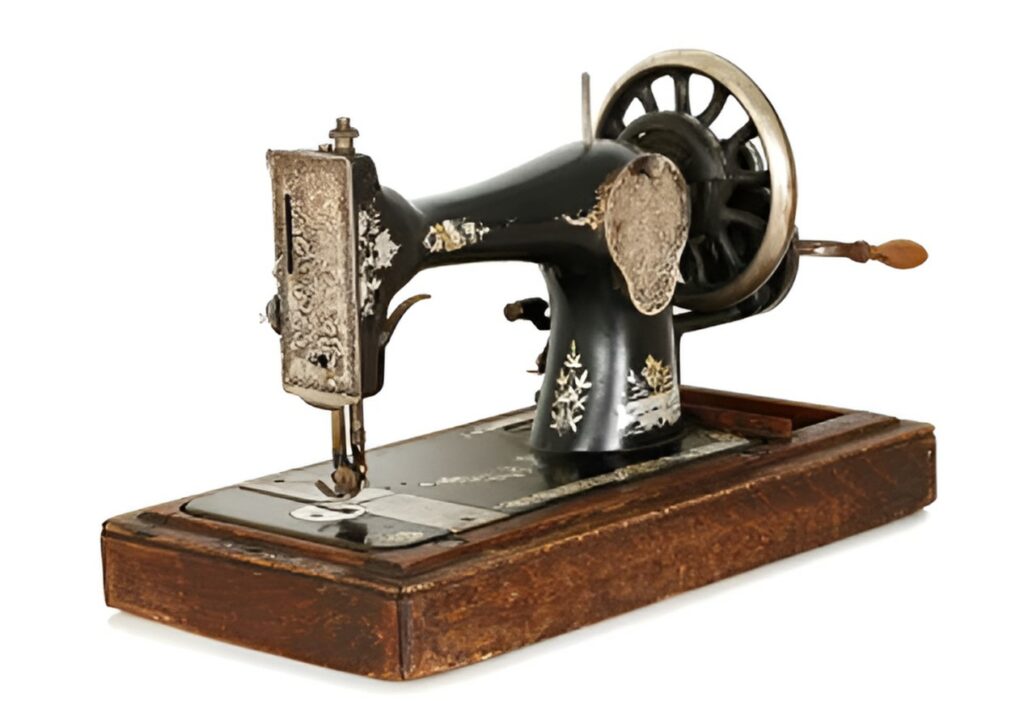
It is certainly the most ordinary type of sewing machine. We all have seen a vintage sewing machine.
Undoubtedly, it had some great features that made it to every other house. Let us explore why and why not to buy it.
Pros of classical sewing machines
These are the most durable sewing machines. If you wish to have a one-time investment, then it is an excellent choice.
Further, nearly all vintage sewing machines come with a small table board. It is ideal for storing all the accessories.
There are no complex technological features. Just simple mechanics to run this sewing machine. Thus, a beginner can easily learn to use it.
Similarly, this simple design makes setting this sewing machine convenient. It will hardly take three to five minutes to set this. However, a beginner might take some time. You need to get the knack of it until you become a pro in pre-setting.
The cherry on top feature is “affordability”. Who does not want to get a durable sewing machine on a budget?
Cons of classical sewing machines
There must be a reason why the world shifted from classical sewing machines to modern ones.
The top reason was portability. All the vintage sewing machines were extremely heavy. Moving them alone was impossible for a woman. Even though some models were relatively light, it’s largely the same.
Then you don’t see any versatility. It can only handle the chain stitches. Unlike the currently available robust machines, here you do not get many options.
Lastly, it requires maintenance. For instance, oiling a vintage sewing machine is a mandatory activity.
Mechanical Sewing Machines
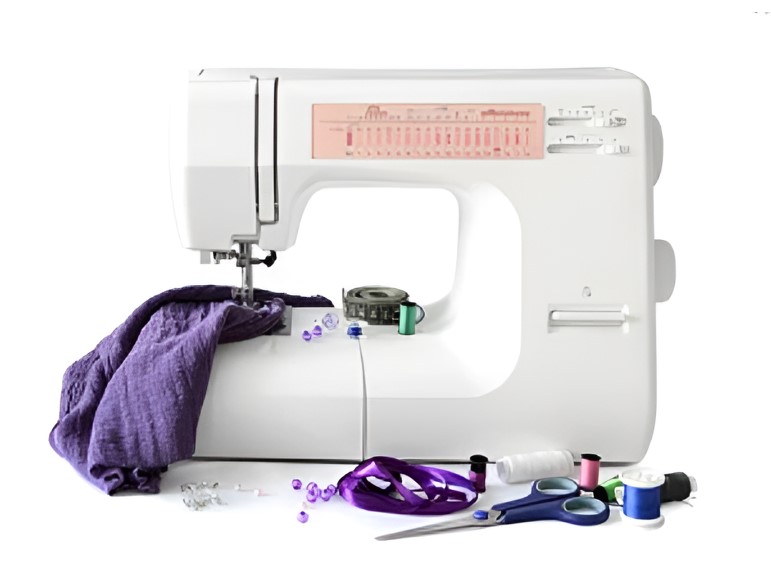
Considering the modern generation, it is the most popular type of sewing machine among them. These are relatively more versatile, offering various features.
You will see a variety of mechanical sewing machines with varying levels of advanced features. Some will be a mix of electronic and mechanical sewing set-ups.
Unlike vintage sewing machines, these are easily available. You may buy them from any electronics shop.
Pros of mechanical sewing machine
Personally, the best thing about mechanical sewing machines is their portability. These are lightweight appliances. People who are supposed to visit different places every now and then can have it.
Although mechanical sewing machines are a type of advanced sewing machine, still these are affordable.
If any buyer is interested in checking the modern features but with a tight budget, then mechanical sewing machines are the most suited for him.
Thirdly, versatility. Creating different stitches and designs with mechanical machines is a lot easier.
Almost every mechanical machine has several buttons on it. These are to adjust the thread tension, stitch length/width, and stitch type too.
For some users, it might get confusing to make use of all these features, but they can consider manuals for quick guidance.
In terms of money, mechanicals are the most affordable option among advanced sewing machines.
You do not need to spend hundreds of bucks to get one. That is why probably beginners tend to love it.
Cons of mechanical sewing machines
Even though all they offer a number of stitches, it’s limited. In relevance to the other advanced machines, it’s very constrained.
It will not be a suitable option for complex sewing projects. Next, you cannot expect a regular mechanical sewing machine to have an exceptional stitch length.
As far as the button holes and other complex necessary features are concerned. So a mechanical sewing machine will not be of any help. Some brands have introduced one or two buttonhole feet, but for a bigger venture that is not enough.
The last thing that I will mention in the cons is “difficulty” for the older generations. All the buttons and switches are tiny, with little abbreviations on almost every mechanical sewing machine. Thus, making it hard for the older generations to use it.
Electronic Sewing Machines
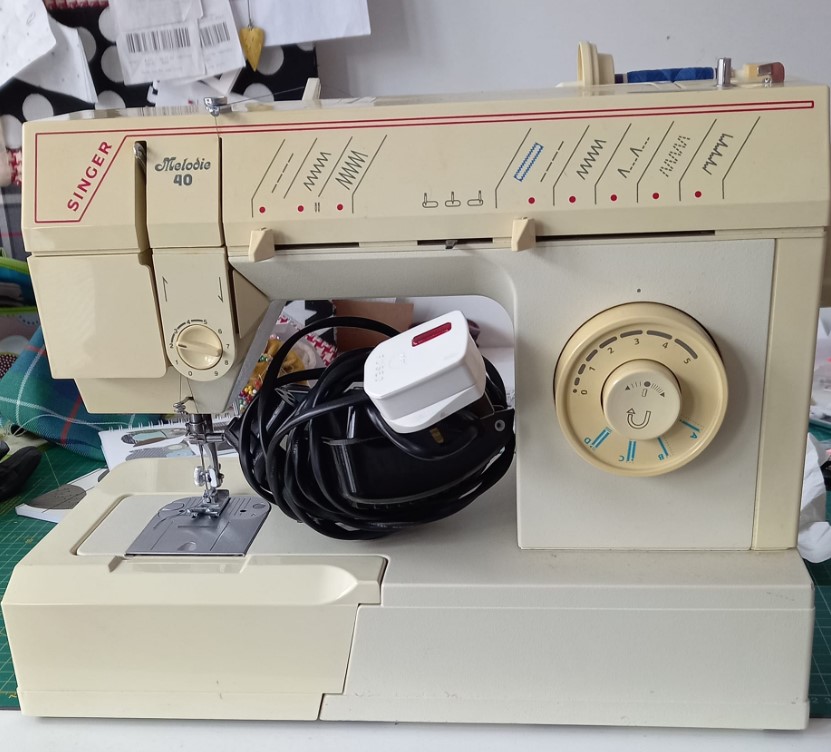
We often believe that anything that is electronic has to be good. Well, you are correct, if you thought so about the electronic sewing machines.
These are “fast” ready-to-use sewing machines. In the near future, we expect to see it in every other household, just like we saw the vintage sewing machines.
Let us see how it will benefit you.
Pros of electronic sewing machines
Lazy people will love the way it works. Using an electronic sewing machine is just like using a microwave oven. Turn on the button, and it will start doing the whole thing.
Sewing thicker and more delicate fabric is convenient, as you can use both your hands to guide the fabric.
Electronic machines are designed to handle the entire stitching process automatically. But these are not as advanced as computerized sewing machines.
You can easily carry an electronic sewing machine. Nearly all the electronic sewing machines currently available are lightweight. However, there are a few brands such as Singer that are manufacturing slightly heavier articles.
One of the main advantages of getting an electronic machine is accessories. Fortunately, many brands give a complete package having all the necessary accessories.
Beginners will cherish any electronic, for it has multiple features. You can select from a number of stitch types, then the buttonhole foot and reverse foot can make their life a lot easier.
Cons of electronic sewing machines
What if I tell you that you cannot use electronic sewing machines all the time?
To run an electronic sewing machine you need a constant electric connection. So it is a risky device for people living in developing countries.
Manufacturing electronic sewing requires several imported parts. If somehow the user damages any part, then getting a spare one can cost them an arm and a leg.
Another downside is speed control. For beginners, learning the speed control mechanism is a little tough. Unlike the mechanical sewing machines, here you will only get a button to turn it on/off. It’s relatively a hard-to-use machine for beginners.
Computerized Sewing Machines
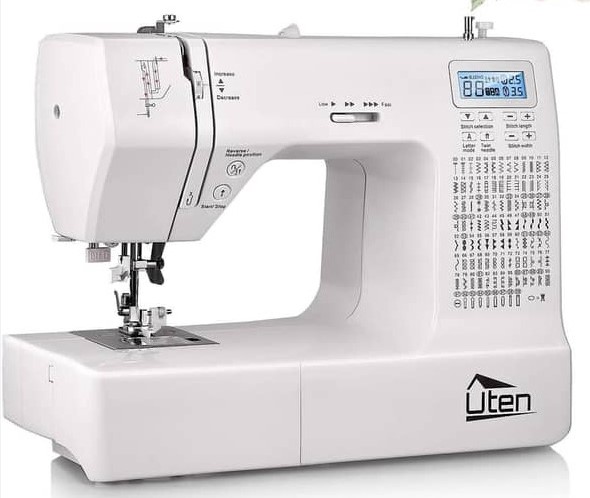
These are extremely robust sewing machines. All these sewing machines are Hi-tech devices.
You will barely see any of these in a house setting. Owing to their advanced features, computerized sewing machines are quite common in small industries.
Here is how it can benefit you.
Pros of computerized sewing machines
Starting off with the looks, these machines look ideal for a modern-tech setting. You may easily keep them in a modern house wherever you like. No touch-up is required.
A computerized sewing machine is an excellent choice for complex tasks. Anyone who wants to run a small business can have it for versatility.
Many computerized sewing machines have USB connection features. You may add new info to the machine whenever you like.
Having such an advanced sewing machine is more like an investment. With time, for beginners, this investment will surely pay off.
Several companies have installed guides in computerized sewing machines. At each step, these devices will automatically update the user.
In some cases, there are buttonhole sensors. It saves a lot of time and energy. Moreover, you don’t need to leave all your work for reverse stitching in computerized sewing machines.
It’s an efficient time-saver for bulk projects. Once you have set the thread tension it will automatically adjust it.
Then you get hundreds of stitch options. Design in whichever way you like. That is the reason for its popularity among industrialists and expert tailors.
The cherry on top is “automation”. It is an exceptionally suitable feature for bulk work. When a bulk order is handled by several people can end up with mismatched items. However, with a computerized sewing machine, one can easily create exactly the same copies.
You may not have thought about it, but a computerized sewing machine can save patterns. No need to start from scratch every other day.
It creates an amazing time efficient routine for a hard working tailor, be it at the industrial level or for domestic purposes.
Cons of computerized sewing machines
The most troublesome issue with these highly advanced sewing machines is weight. In comparison to all the other types of sewing machines; these are the heaviest. Carrying them is not for the weak ones.
Older people and women can use it when set in a permanent space. It will be very rare if you find a computerized sewing machine that is portable.
Then just like electrical sewing machines, these also require electricity. It will not only increase the electricity bill. Thus, increasing the overall price of using this machine. Second, you cannot rely on it in regions where power outages are routine. It will impact your work efficiency.
Embroidery Machines
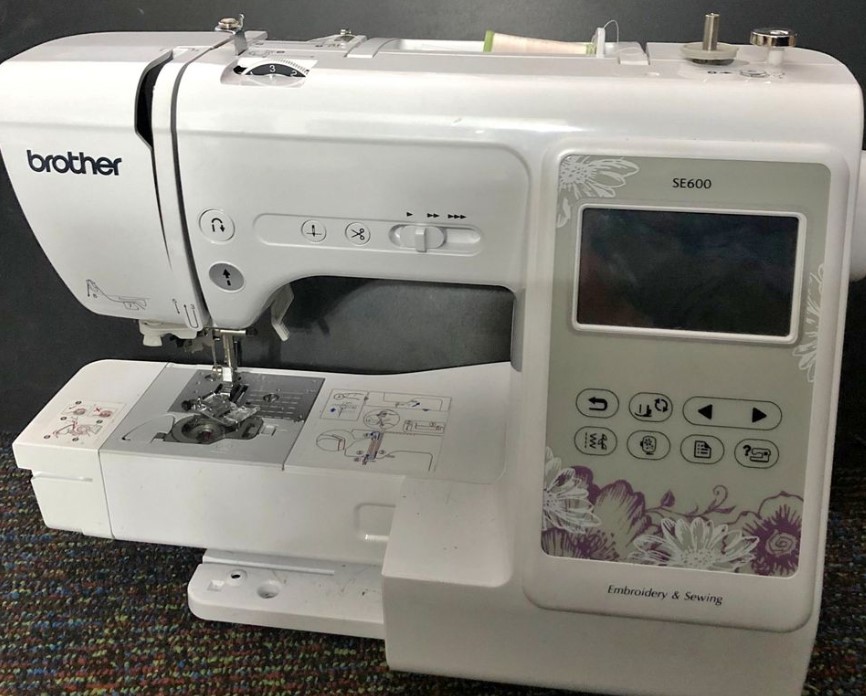
Embroidery sewing machines are relatively bigger than regular sewing machines. These are only meant for embroidery tasks.
Currently, embroidery machines are available with various technologies. I will categorize embroidery sewing machines as moderately advanced ones.
Here is how it is benefitting the world.
Pros of embroidery sewing machines
Doing embroidery by hand is a very long time taking process. With embroidery machines, it will be a matter of a few minutes.
As most of the embroidery machines are computerized therefore working speed is quite good. You can handle a lot of orders in a day.
These devices are a great option for small industries. Furthermore, advanced embroidery machines come with multiple features. Thus, providing an opportunity to create multiple designs and samples.
Some embroidery machine has the option to copy random designs. You can connect them with USBs and download the designs of your choice. It opens up ways for creativity.
For domestic purposes, embroidery machines are an extremely affordable option. You can conveniently design numerous art designs on your clothes without paying much.
Anyone who loves embroidered clothes must take it as a one-time investment.
You get to choose from different types of embroidery machines. Nowadays, three types of embroidery machines are the most common. These are the single-head, schiffli, and multi-head embroidery machines.
Then just like a computerized sewing machine, with an embroidery machine, the chances of error are quite low. It’s a fully automated machine, and you cannot expect anything to go wrong if you have set the machine correctly.
Lastly, unlike earlier times when we needed experts to embroider, using embroidery machines have changed this reality. All an industry needs now is someone who knows to run a machine.
Cons of embroidery sewing machines
The most obvious drawback of any embroidery machine is it is only for embroidery purposes. You cannot expect it for the sewing procedures.
However, from an expert’s perspective, I believe it is a hard-to-use device. Anyone who has little to no knowledge of sewing will find it a tough experience.
Then it takes a lot of steps to set up the machine. Preparing it for a certain type of embroidery takes nearly 10 minutes. Still, there are some models that can help you save time.
If you want to create something unique, such as through gradient designing, then embroidery machines are a big no. It will take ages to do so.
Lastly, if you do not have much money to invest in a big embroidery machine, then be ready to face limitations regarding the design.
Quilting Sewing Machines
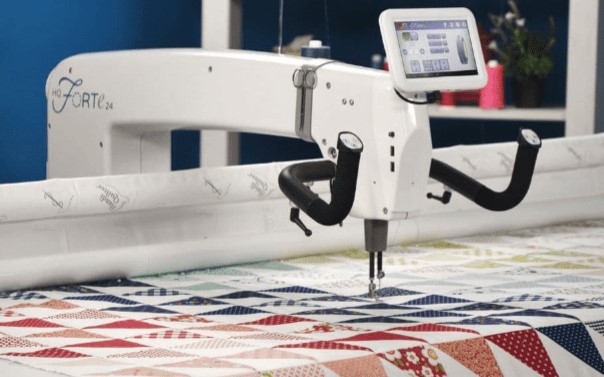
The name of the quilting machine itself tells that this one will be a little bigger than the regular sewing machines.
Simply put, a quilting sewing machine is similar to a regular machine with enhanced qualities.
People who work in various cloth-related industries use quilting sewing machines instead of regular sewing machines.
The main purpose of a quilting sewing machine is to stitch layers of fabric. It can be of wool or leather, or of any thick fabric. If you have never been to an industry then you probably have not seen a quilting sewing machine.
If you are wondering how it works; then think of the throat of this machine. It is larger than the regular machine, thus, allowing more space and easy stitching of layers of fabrics.
Pros of a quilting sewing machine
Obviously, the top benefit of a quilting sewing machine is its capability to sew thick fabrics. These are heavy-duty sewing machines that can handle nearly all kinds of fabrics.
Thus, whosoever is using a quilting sewing machine for stitching instead of a regular one, can conveniently handle more complex work.
Another prominent feature of nearly all quilting sewing machines is speed. Unlike a regular classical sewing machine, these machines have higher speeds.
It is a multi-purpose, all-rounder machine. In an embroidery machine, you will only get to embroidery; on the contrary, users can do several types of stitching stuff with a quilting machine.
For many people, it is always confusing whether to get a separate sewing table or not. That is not an issue with a quilting machine. It has an attached sewing table. That will allow you an easy work experience.
Cons of quilting machines
Although a quilting sewing machine is a great way to increase your sewing expertise, there are several issues attached to it.
Among all of them, the most important one is its size. Quilting sewing machines are bigger in size, therefore, require more space.
It is not for beginners. Using it requires a lot of practice. They come with numerous different features, and getting a knack for each of them takes practice and time.
As you will generally use this machine for sewing heavy and thick clothes, thus, be ready to break your neck. No doubt these machines are pretty fast, but holding heavy cloth constantly for long hours can have painful effects.
Heavy Duty Sewing Machines
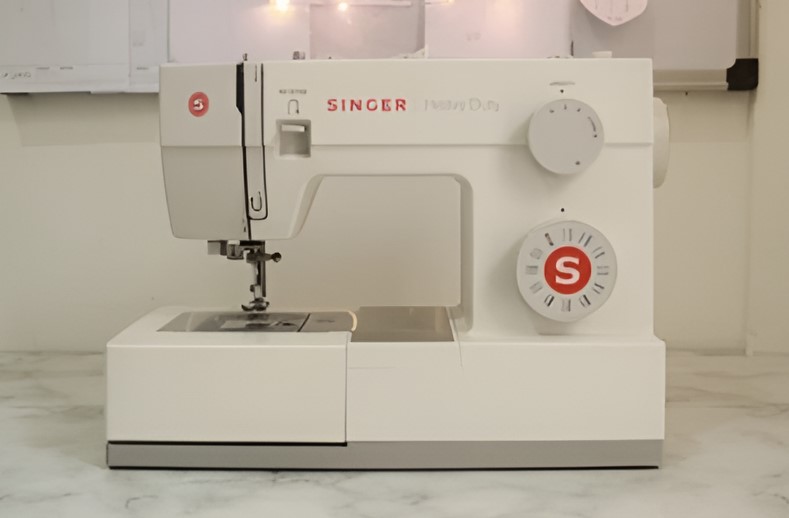
Do not confuse a computerized sewing machine with heavy duty sewing machines. These two are poles apart.
However, these machines are suitable for both at home work and industrial tasks. But, people often use it for industrial tasks. It proves to be a great option to sew thick fabrics, such as denim and leather.
Let us see how beneficial it is for you.
Pros of heavy duty sewing machine
Using a heavy duty sewing machine is quite simple. It comes with a hand drive, so you only need to focus on the cloth.
As it is an advanced type of sewing machine, thus it is normal to expect a high speed. It is an all-rounder sewing machine enabled to handle all sewing-related tasks. Be it quilting, hemming, monogramming, or simple stitching.
In most heavy duty sewing machines you get a permanent attached motor. It is probably why the price of these machines is way higher than regular sewing machines. Unlike home sewing machines, it can go as high as 6000 stitches per minute. It sounds huge but for companies with bulk orders, it is just average.
Coming to maintenance. You do not need to think much about it. It has an automatic oiling and greasing feature. Making it an ideal fit for industries where hiring people for cleaning will be an added cost.
If you are purchasing a heavy-duty sewing machine, consider it an investment. These machines are incredibly strong and durable. One can easily use them for straight 12 to 20 years.
Plus, it may feel a bit pricey but if you see it in the long run, keeping it will not cost you much. Heavy-duty sewing machines are certainly the best option for companies that handle several different types of stitching tasks.
Lastly, the company owners or managers will only need to conduct some basic training sessions. With heavy-duty sewing machines, it is very easy to sew. Once the user has set the stitch type, the machine will automatically adjust.
Cons of heavy duty sewing machines
You cannot move them easily. They are fixed tools. Once placed in a heavy duty sewing machine, expect it to come off when you feel like discarding it. I know for some it is hard to register, but they are really that heavy.
Secondly, these machines are noisy. Therefore, avoid using it at places where noise creation is prohibited.
Before you assume it is a suitable option for all stitching, let me tell you that it’s not good for hemming. The reason is the absence of a free arm.
Serger Machines
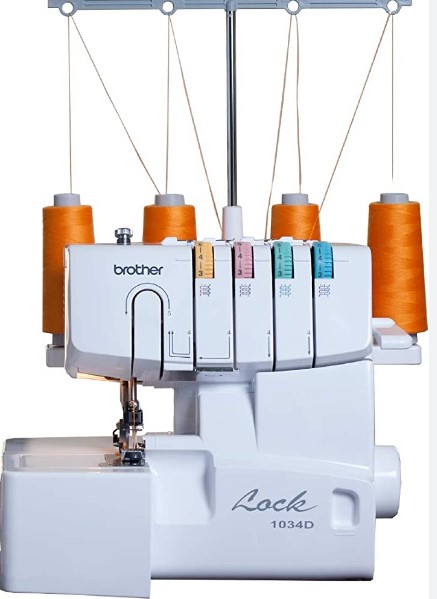
One may think that he can do any type of stitching with a sewing machine, but that is not true. That is why we have serger machines. These are used to make clean and tidy edges.
The look of these machines is quite different from a regular one. You can do different types of difficult stitches with a serger sewing machine.
These are not very common for domestic use, but in factories, serger machines are high in demand.
Pros of serger sewing machine
The most prominent usage of serger machines is their ability to do stitches that a normal sewing machine cannot.
You can do the overlock stitches with a serger machine. Although for domestic stitches, overlock stitches are not necessary, brands cannot do without them.
Unlike the normal sewing machine, with a serger machine, you can easily handle stretched fabrics. It allows multiple thread feeds, thus securing the stretchy fabric in place.
In comparison to all the other sewing machines, serger machines provide more durable stitches. Furthermore, it is a bit faster than electrical and computerized sewing machines.
Cons of serger sewing machine
If there has to be one reason for not buying a serger machine, it will be its noise. It is a heavy-duty sewing machine, therefore, the noise is unavoidable.
On top of that, a serger machine requires a lot of threads. So for a beginner, it will be hard to set up the machine. However, you can get an automatic serger sewing machine.
Lastly, as compared to other sewing machines, serger sewing machines are more expensive. You may consider it as a con regarding the functionality.
Bottom line: Which type of sewing machine is the best for you?
It is quite evident that all the sewing machines work to sew. Technically, more or less all are the same, but slight differences and functions can make it the best or the worst for you.
Let us see, for which purpose you will need what type of sewing machine.
- Mechanical sewing machines are best when you need a sewing machine once a month or a year. These are great for fixing and stitching basic clothes.
- Electrical sewing machines will suit people who regularly stitch, and need a fast sewing machine at home. These are easy to carry too.
- Then the computerized sewing machines are good for tailors, and people who want to level up their stitching experiences.
- The embroidery sewing machine is only great for embroidery. You must not expect it for any other stitching related task.
- Then comes the quilting sewing machine, these are specific ones. You can only use it for quilting.
- Heavy-duty sewing machines are ideal for industries, where there are multiple stitching tasks. These machines can handle nearly every task. They take up a lot of space.
- The serger machines are only for hemming, and overlocking.
When choosing a sewing machine, it is crucial to do a need analysis. The top things that a buyer must consider are the space, purpose of use, budget, and frequency of use.
I believe for a limited space when needing a sewing machine for home, electrical sewing machines are the best.
Both electrical and mechanical sewing machines are suitable for regular domestic stitching.
However, if you are looking for a multi-purpose machine for your home or factory, then computerized, and heavy duty sewing machines are the most suitable. These are also pretty expensive. So people with a bigger budget can opt for these.
Before buying any sewing machine, it will be better to read about the product’s specs and do a price analysis. Good luck.
